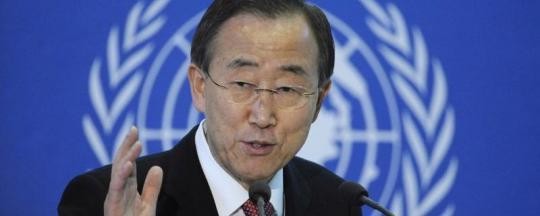The legitimacy of South Sudan’s current government formation is “blurred”, United Nations Chief Ban Ki Moon said in a report to the U.N. Security Council, saying that “representation in the institutions of transition (is) disputed,”
“The principal challenge is the lack of inclusivity in the political process, in particular with respect to Mr. Machar, who retains significant political and military support,” the U.N. chief said in a report.
For South Sudan’s peace deal, Ban’s statements are sure to raise significant questions about its legitimacy as it currently stands.
He said that there has been no “concerted or formal efforts to revitalize the political process,” since August, and “efforts to engage the parties have been desultory and unsynchronized.”
A contributing factor in this process, the U.N. chief said, was the ousting rebel leader Riek Machar in favor of his former deputy, Taban Deng Gai.
The Joint Monitoring and Evaluation Commission said in a statement yesterday that they supported the creation of cantonment sites and integration of forces.
Ban’s said that there is a very real risk of mass atrocities being committed in South Sudan, and said that the United Nations system is under equipped to respond to an outbreak of violence.
“It must be clearly understood that United Nations peacekeeping operations do not have the appropriate reach, manpower or capabilities to stop mass atrocities,” Ban said.




